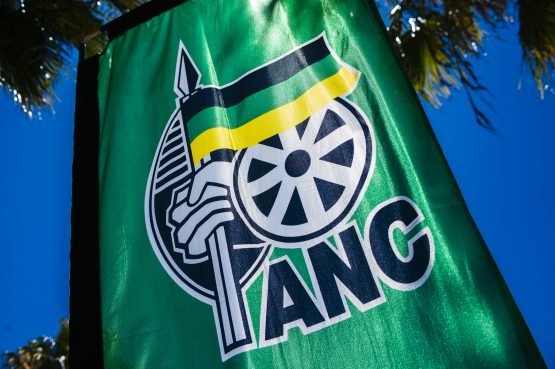IRR poll shows ANC support at 56%, DA and EFF down
The survey shows support for DA comes in at 18% and at 11% for the EFF.

ANC banner. Picture: Twitter
Ahead of the national elections next year, the governing African National Congress (ANC) has slightly gained support from September to December, with the Institute of Race Relation’s (IRR’s) survey revealing a 4% increase to 56% in December.
The Institute took a snap poll between November 26 to December 4 – focusing exclusively on party political support – to supplement its first full survey on the electoral landscape, carried out in September 2018.
The poll shows the governing party’s support at 56% in December while the DA is on 18%, down five percentage points from September and the EFF is on 11%, down two percentage points from September.
The IRR said in a statement the poll comprised three sets of questions, voting intention, party favourability (ANC, DA, EFF) and, finally, a question on the strength of support for Patricia de Lille’s proposed new political party (Good), when forced to choose between it and the four biggest political parties.
The IRR statement reads: “That pattern is reflected in the party favourability ratings, which has 54% of respondents somewhat or very favourable towards the ANC (up from 53% in September); 28% somewhat or very favourable towards the DA (down from 34% in September) and 21% somewhat or very favourable towards the EFF (down from 28% in September),” .
The institute added that its snap poll also showed that in Gauteng, no party held a majority.
According to the poll, the ANC comes in with 48% in Gauteng, while the DA has 25% and the EFF 12%. The ANC has increased by two percentage points from September.
“The potential market for Patricia de Lille’s new party seems to be primarily among undecided voters, some of whom are likely alienated from the DA and the ANC. After that, she draws support directly from respondents who had previously selected the DA or the ANC.”
Head of politics and governance at the institute Gareth van Onselen said the sample used for the poll “was fully demographically representative and comprised only registered voters”.
“A total of 1,017 respondents were questioned. The margin of error is 3.9%. For the Gauteng sample, the margin of error is 6.4%. The confidence level is 95%.”
The poll forecast lower voter turnout for the elections next year, “a trend which is typical of maturing democracies and of electoral environments with high levels of discontent”.
The institute said it generated four additional turnout scenarios for its numbers, which are 69%, 71%, 75%, and 78%.
“This was done by assigning a probability of voting to each respondent based on their responses to several questions designed to measure their likelihood of voting, and excluding those least likely to vote.”
The poll found that at a projected turnout scenario of 69%, the ANC is projected to get 59%, compared to 56% on 100% turnout, the DA 22% compared to 18% and EFF 10%, down from 11%.
Van Onselen said the poll was not a prediction but a snapshot in time, “in this case of the electoral market between 26 November 2018 and 4 December 2018”.
“Likewise, the numbers presented in the poll are not absolutely definitive.”
The poll put national support for the governing party at 51%, the DA at 17%, and support for the EFF at 11%, without undecided voters who account for 10% of the sample.
The key findings by the poll on party political support are that if an election were held tomorrow, on a projected 69% turnout scenario, the DA would return to 22%.
“However, that would not be an increase from its 2014 result. Lower turnout has a negligible effect on support for the EFF, which remains significantly higher than where it stood in 2014.”
Van Onselen said the DA’s loss in support seems to cut across racial demographics.
“It is down from 10% among black voters in September to 6% and, among minority voters, down from 71% in September to 61%.”
He said the ANC’s growth came on the back of an increase in black voter support, up from 63% to 69%.
“In turn, the EFF, which relies almost exclusively on black voters, lost two percentage points in this market, down from 16% to 14%. The most likely explanation for these trends is not current affairs but a general move back towards the ANC by those voters previously alienated from the party, although issues like the advent of Patricia de Lille’s new party and the VBS Mutual Bank scandal would have acted to retard the ability of both the DA and EFF to counter this.”
Van Onselen stressed that it was important to note there were still many variables at play.
“The impact of load-shedding, for example, has yet to be tested.”
A survey by Afrobarometer, whose findings were released late in October, found that if South Africans headed to the polls the next day, 48% of them would vote for the ANC while the DA and the EFF would share 11% of the voter support respectively.
For more news your way, download The Citizen’s app for iOS and Android.



